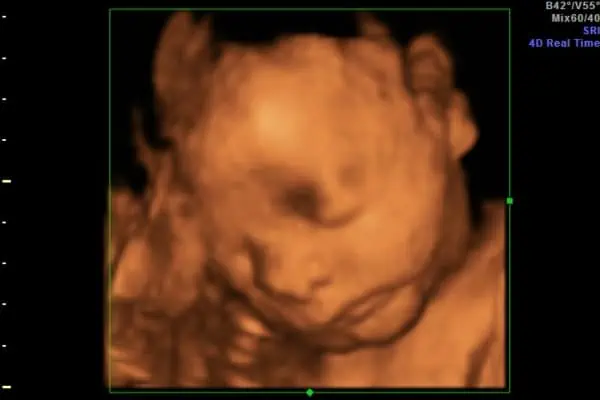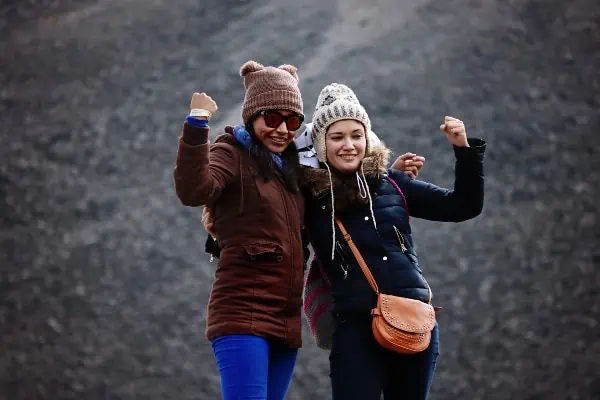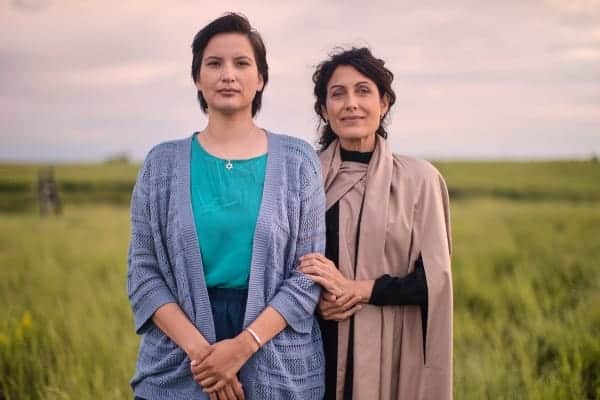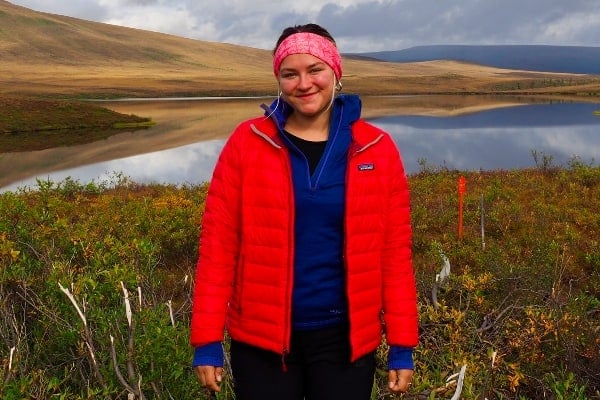Trekking around the vast wilderness behind my grandparents home, I remember my grandma taking me through the wilderness teaching me about traditional medicines. I loved learning what the medicines could be used for, when to use them, their benefits and the importance of respect and dignity for all life around me.
She would discuss survival techniques, shelter building, edible berries, edible plants and how to make it through a cold night if I ever found myself lost in the woods. Owning two trap lines hundreds of kilometres into the wilderness, where there was no cell service, running water or other individuals, it was important to learn these survival methods and how to aid someone else that might be in distress.
My grandmother, the matriarch of our family, was full of knowledge; a Kaska/Tahltan elder, her traditions were important to her. My grandma’s life events and stories were shared only to the carefully listening ear. Although my grandma influenced me in many ways, the most profound impact she had on my life was through her activism, for not only indigenous people but everyone.
Just over two years ago, I found myself stagnant in a job within the city limits of Halifax, Nova Scotia. I had uprooted my life in the Yukon over a decade before to pursue my degree. I left behind the life I knew in the Yukon, the guidance of my grandmother and the support of my family in search for something more.
I completed my schooling, which was something my grandmother had encouraged. One of the things she advocated for most strongly was accessible education for those who lived in the Yukon. I was fortunate that my hockey career led me to university on the East Coast. It was early February 2015, when I packed my bags to head back to the Yukon, having just lost my grandfather not a month earlier, I was on my way to visit my ailing grandmother in the hospital.
I had called my family nightly to check in on her, she was often too weak to speak. As I put my bags in the taxi heading towards the airport I received a phone call from my uncle letting me know my grandmother had passed away moments earlier.
I attended my grandmother’s funeral a week later and was able to participate in the traditional funeral she had requested.
The funeral sparked my interest in learning more about my culture and family history. A time of solace, I spent the next year planning my return to the Yukon, when an unexpected opportunity at a local women’s organization in Watson Lake presented itself. Women’s rights and social activism was not always a topic around the dinner table. It was something I did not realize was entrenched in my values at a young age.
I attended some of my first meetings in the community with my grandmother, listening to her advocate for cultural healing, preserving tradition, women’s rights and working together to keep the community from divide.
I love flipping through photographs of my grandmother at workshops, or at rallies: she was always spearheading a campaign. I admire that she was never afraid to speak her mind and share her values and love for all individuals regardless of race, gender or sexuality.
My mother – another amazing role model – followed closely in her mother’s footsteps. She received an award for bridging the gap between First Nations people and the RCMP in 2012. My mother, like her own mother, continues to be a strong voice in the community and big influence in my activism.
I feel fortunate that I was raised with Kaska/Tahltan values. To me, my grandma was just “my grandma,” but as an adult I feel so lucky that she ignited within me so many of the values I so strongly believe in.
While never labeled or necessarily articulated, my grandmother’s life and legacy planted the roots of social justice and social activism within me. I have the matriarchs of my family to thank for my ever-developing views and support in a line of work that is not glorious, and often thankless, but that I am thankful for.
This is the final story in a four part series to celebrate International Women’s day and the International day for the Elimination of Racism. The series is coordinated by the Victoria Faulkner Women’s Centre, the Yukon Status of Women Council, Les EssentiElles and the Yukon Women’s Transition Home Society.




